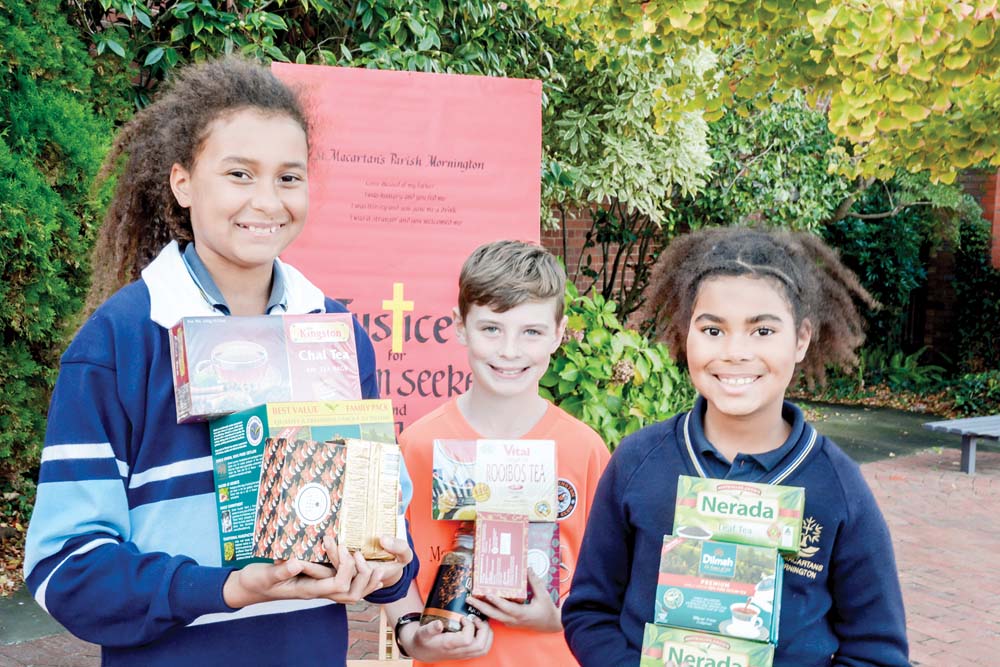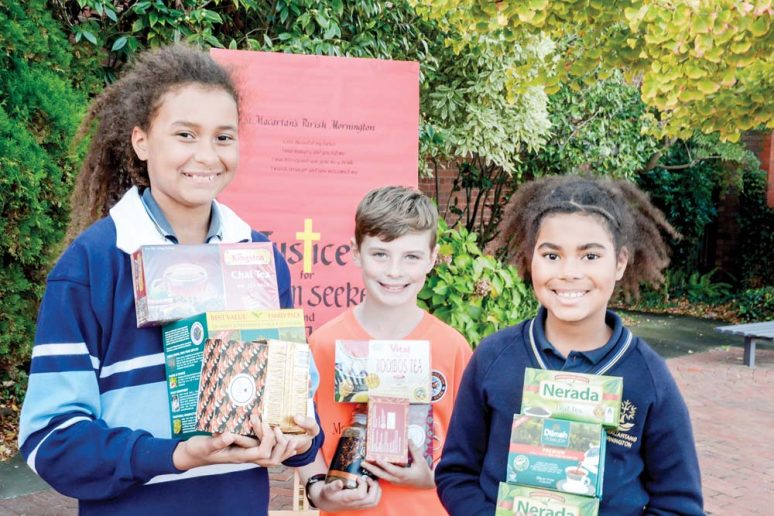
By Barry Morris
TV footage of bombed-out cities, streams of people fleeing war or persecution, the tiny body of a Syrian boy washed on to a beach in Turkey – all are images graphically illustrating the story of 22 million people worldwide seeking asylum.
The scale of the human disaster can leave us numb, wondering what on earth, if anything, we can do to help.
Asylum means refuge, haven, sanctuary, shelter and place of safety.
Because some of these asylum seekers end up in Victoria, the social justice group at St Macartan’s Catholic Church, Mornington, has decided to do something about it.
The scheme, supported by the parish priest, Father Minh Tran SJ, sees parishioners each month collecting in-demand items such as tinned tomatoes and tuna, cooking oil, coffee and tea and cleaning materials.
The goods will be taken to the Brigidine Asylum Seekers Project (BASP) in Middle Park, where up to 70 asylum seeker families and individuals a week go for food.
BASP has been operating there since 2001, providing food and advice and helping with shelter.
Social justice group members Chris Smyth said parishioners were distressed that some of those who had sought asylum in Australia were now without shelter or food.
“We understand that those wanting to live in Australia are required to obtain a visa in advance,” he said.
“The number of such humanitarian visas, over 18,000 this year, is far exceeded by the numbers who hope to be granted one.
“Those who do not receive a visa are desperate and many will take any chance to get here, no matter how dangerous the trip might be.”
Those who arrive without a visa are detained while their identity is confirmed and their claim to asylum assessed.
Once approved, they are permitted to live in community detention – they live in our community subject to specified conditions.
There have been various visas offered to asylum seekers, coming with different conditions, all offering only temporary protection.
In 2016/17 all holders of a bridging visa were required to apply for either a Temporary Protection Visa or a Safe Haven Enterprise Visa.
“To a fragile asylum seeker any possible change of status is threatening,” Mr Smyth said.
“The application form was long and complicated and there were too few legal advisers to meet the demand for explanation and advice.
“The outcome was inevitable. Some filled in the form incorrectly, others panicked and did not complete the form, still others applied for the visa less suited to their circumstances.”
Mr Smyth said the Brigidine Asylum Seekers Project had stepped in to help them “and now we at Macartan’s, Mornington, are part of that help”.
Meanwhile, the wave of human misery continues to wash on to the shores of nations that may offer some hope of safety.
Worldwide
SIXTY five million people are forcibly displaced in the world today; 22 million, of who 10 million are stateless, are seeking asylum in another country.
Most people are displaced in their own country and most are from South Sudan, Afghanistan and Syria.
Uganda, Ethiopia, Lebanon, Pakistan and Turkey are first destinations for most, but many then seek asylum elsewhere.
Australia
THIS year Australia will accept 18,000 applicants on humanitarian grounds.
Many have also arrived seeking asylum without a visa.
After official processing, they are provided with a temporary visa.
They receive some government support, including Medicare, education and an allowance lower than Newstart.
They live in the Australian community on either a temporary protection visa (TPV) or a safe haven enterprise visa (SHEV). It is estimated there are 30,000 on these visas at present.
Victoria hosts more of these asylum seekers than any other state.
These people are permitted to work, but jobs are difficult to find.
To take maximum advantage of their visa, many have to move to regional parts of the State.
First published in the Southern Peninsula News – 15 May 2018



